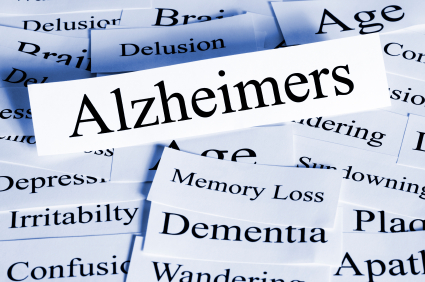Alzheimer’s is a neurodegenerative disease which is caused due to death of brain cells over the course of time. It is the most common form of dementia, a general term for memory loss and cognitive deficits.
It causes problems related to thinking, memory and behavior which starts mildly and gets progressively worse.

According to Alzheimer’s Association, Alzheimer’s accounts for 50 to 80% of all cases of dementia. Most individuals with this condition are identified after 65 years of age, but it is possible to be diagnosed earlier; which is called early-onset Alzheimer’s.
Lewy body dementia, vascular dementia are some of the various types of dementia.
Today through this article you can learn about the risk factors, symptoms, diagnosis and treatment for Alzheimer’s.
Risk Factors for Alzheimer’s:
Following are certain dementia causes that have been identified:
- Age – This disorder is most likely to be seen in older people with a greater proportion of over 65 year old individuals. But, now the days with changing health trends and poor lifestyle, the symptoms have been seen from early 50’s only.
- Family History – Individuals whose immediate family members have suffered from this condition are more likely to develop Alzheimer’s than those who have not had any family history of Alzheimer’s.
- Genetics –Certain genes like apolipoprotein E or APOE gene have been linked to develop Alzheimer’s, which increases the chances about 3 to eight times more than a person without this gene. Some other genes called risk genes and deterministic genes have also been found to be associated with Alzheimer’s disease.
Symptoms of Alzheimer’s
Alzheimer’s symptoms develop slowly and gets worse over the time and becomes severe enough to interfere with daily tasks.
Dementia Symptoms may include:
- Trouble with familiar tasks like getting lost on a familiar route
- Difficulty in recognizing faces or common objects
- Inability to take in and remember new information
- Difficulty thinking of common words while speaking
- Poor understanding of safety risks
- Poor decision making ability
- Difficulty in operating simple implements
- Changes in behavior and personality
- Repetitive questions or conversations
How to Diagnose Alzheimer’s?
Doctor’s will diagnose Alzheimer’s disease by
- Examining your medical history (your past illness or any medications you have taken)
- Physical examinations like blood pressure check, pulse and body temperature
- Checking neurological function (e.g. muscle tone, reflexes, sensation and speech)
- Brain imaging studies like MRI (magnetic resonance imaging) are performed
- Mental status tests are done by asking patient what day and year it is
Treatment for Alzheimer’s Disease
There is no cure for Alzheimer’s, but there are medications that can help ease the symptoms. But dementia treatment plan depends upon the condition of the patient.
The most commonly used medications for early to moderate stage of dementia disease are rivastigmine or donepezil. These medications help maintain high levels of the neurotransmitter acetylcholine in the brain, to aid with memory.
Moderate to severe Alzheimer’s are usually treated with memantine (Namenda) which helps moderate glutamate and slows down symptom progression.
Recent research studies suggest that Vitamin E may catch the free radicals that cause damage to brain cells and reduce the risk of growing Alzheimer’s disease.
Antidepressants, antipsychotics and anti-anxiety medications have also been used in treating Alzheimer’s disease to ease depressed moods, aggression, restlessness, hallucinations and agitation.
Non-drug treatment like brain training can help early stage Alzheimer’s to improve a cognitive function that helps to deal with forgetfulness.
Lifestyle Changes to Prevent Alzheimer’s
Although there is no known dementia cure, researchers suggest that certain lifestyle changes can reduce the risk of developing Alzheimer’s disease and dementia.
These include:
- Being physically active
- Eating a well- balanced diet
- Maintaining good cardiac health
- Exercising the brain
- Not smoking
So, friends please be aware of this dreadful Alzheimer’s disease…nothing can be worse than losing your memory. Hence you must start making healthier changes and opt for a healthy lifestyle to prevent Alzheimer’s.
You must also encourage your kids and elders in the family to do the same.
Would you like to know more on Alzheimer’s? Let me know in the comments section below.
If you enjoyed this post, please share it with your friends!

